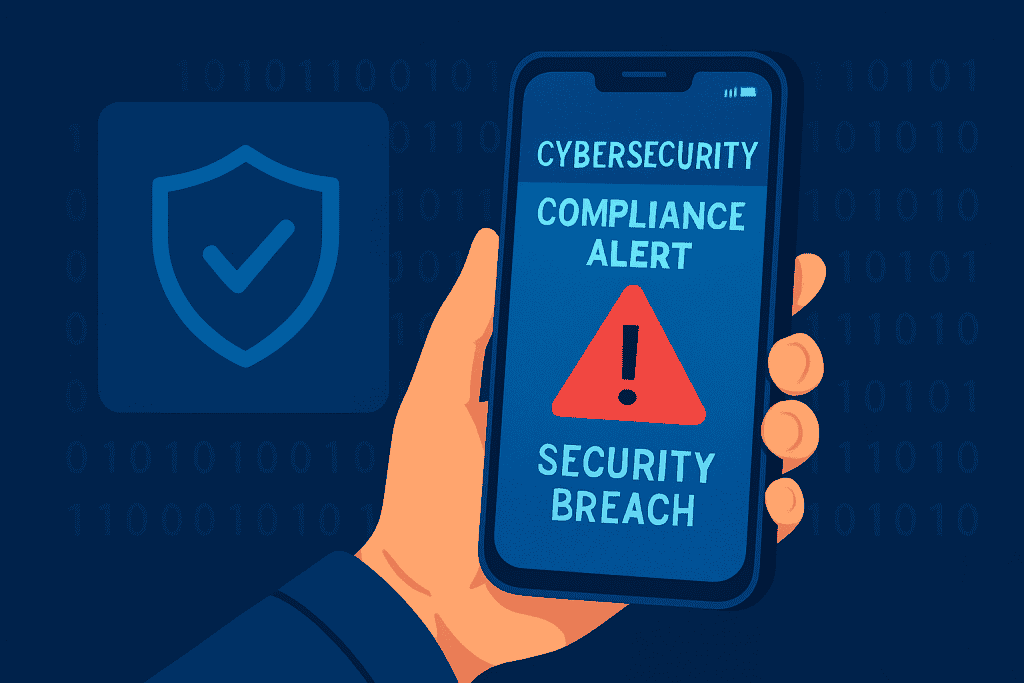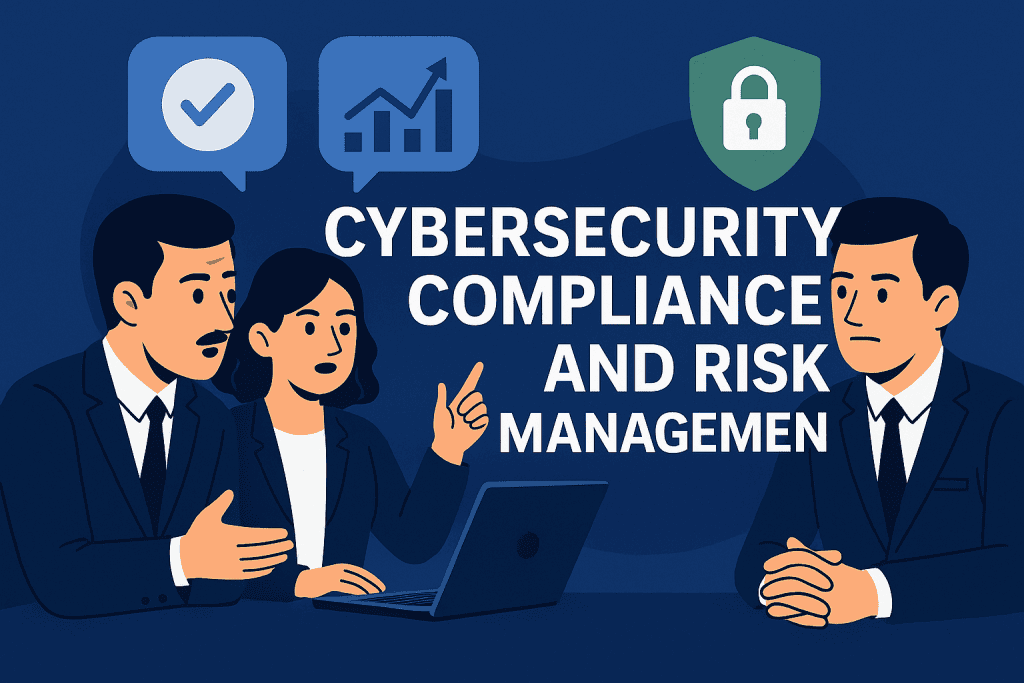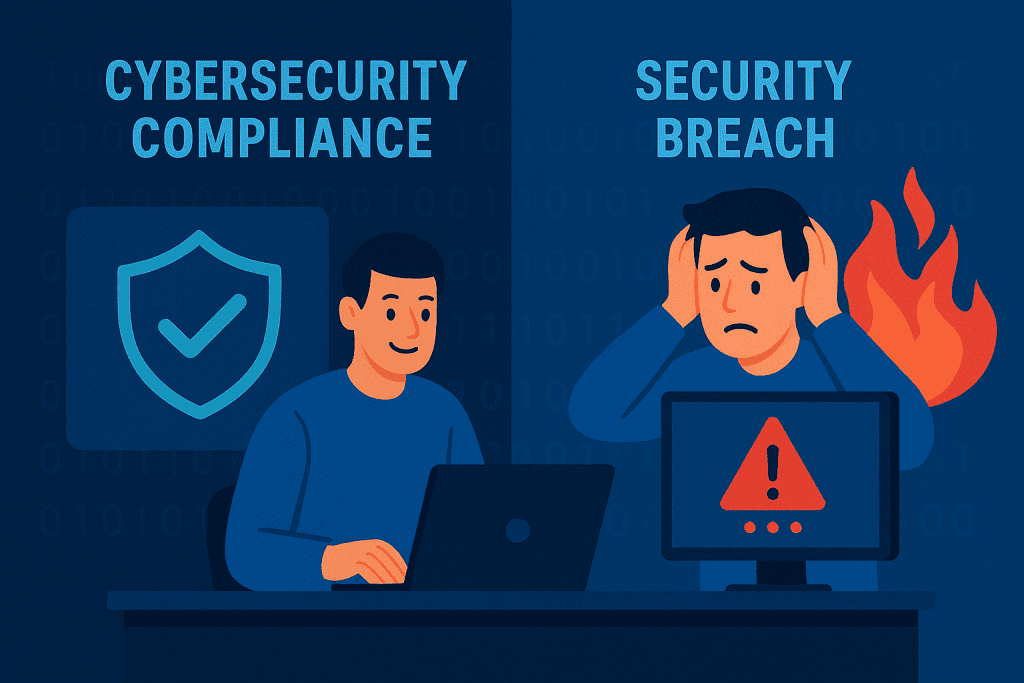Imagine this: You wake up, check your phone, and see an email from your bank about “suspicious activity.” Your heart races. Did someone hack your account? In today’s world, cybersecurity compliance isn’t just an IT concern—it affects everyone, from small businesses to multinational corporations. As cyber threats grow more sophisticated, staying compliant with evolving security regulations is no longer optional.
As we step into 2024, cybersecurity compliance is more critical than ever. Governments worldwide are tightening regulations, companies are scrambling to adapt, and hackers? They’re evolving too. Whether you’re a business owner, an IT professional, or just someone who values online security, understanding these new rules is essential.
So, what are the big cybersecurity regulations shaping 2024? And more importantly, how can you stay compliant while keeping your data safe? Let’s dive in.

The Role of Governance in Cybersecurity

Cybersecurity is no longer just about installing antivirus software and calling it a day. Governance is now at the heart of cybersecurity compliance strategies. Governments and regulatory bodies are pushing for stricter controls, requiring companies to take a more proactive approach.
Take the SEC’s new cybersecurity compliance rules, for example. Public companies must now disclose cyber incidents within four business days. That’s a game-changer. Imagine a retailer getting hacked right before Black Friday—within days, investors, customers, and competitors will know. Transparency is key, but it also means companies must have airtight security measures in place.
Another big shift? More businesses are expected to have dedicated Chief Information Security Officers (CISOs) and structured compliance programs. This isn’t just about avoiding fines—it’s about proving to customers that their data is in safe hands.
Expert Insight
“Cyber governance is no longer optional—it’s a business imperative. Organizations that fail to establish strong security frameworks will not only face regulatory consequences but will also lose the trust of their customers.”
— John Peterson, Cybersecurity Consultant
Rise of Risk-Based Cybersecurity Compliance
Not all businesses face the same cyber threats. A small e-commerce shop won’t have the same security needs as a global bank. That’s why risk-based cybersecurity compliance frameworks are gaining traction.
The NIST Cybersecurity Framework (CSF), already a gold standard, is getting a 2.0 upgrade. Expect stronger guidelines on supply chain security and artificial intelligence risks. In the EU, the NIS2 Directive is expanding its reach, demanding more sectors implement strict cybersecurity measures.
But here’s the challenge—compliance isn’t a one-size-fits-all deal. Businesses must assess their unique risks and tailor their security strategies accordingly. Cybersecurity compliance isn’t just about following rules; it’s about staying one step ahead of hackers.
Risk-Based Compliance in Action
In 2023, a financial services firm adopted a risk-based framework to enhance its cybersecurity posture. By identifying critical assets and prioritizing threats, the company reduced security breaches by 40% within a year. Their approach? Focus on proactive security rather than reactive compliance.
“Companies that treat cybersecurity as a checklist item will always be vulnerable. The real winners are those who integrate security into their daily operations.”
— Sarah Lee, Cyber Risk Analyst
Rising Demand for Cybersecurity Services
Let’s be real—most businesses don’t have an army of cybersecurity experts in-house. That’s why services and consulting firms are booming. Companies are outsourcing their compliance needs to professionals who can help them navigate this complex landscape.
Regulations like DORA (Digital Operational Resilience Act) in Europe and updates to the HIPAA Security Rule in the U.S. are pushing businesses to get serious about their cybersecurity compliance strategies. But for smaller companies, hiring a full-time compliance team isn’t feasible. The solution? Cybersecurity-as-a-Service (CaaS).
From penetration testing to 24/7 monitoring, businesses are relying on third-party experts to keep them compliant. The downside? As demand rises, costs will too. The key is finding a provider who offers a framework that fits your business needs without breaking the bank.
The Future of Cybersecurity Consulting
“The demand for cybersecurity consulting is skyrocketing. With evolving regulations and increasing cyber threats, businesses need expert guidance to ensure they’re both compliant and secure.”
— Michael Roberts, CEO of SecureTech Consulting
Regulations vs. Hackers
As regulations tighten, hackers are adapting. From ransomware attacks on hospitals to phishing scams targeting executives, cybercriminals are constantly finding new ways to exploit vulnerabilities.
The European Union’s AI Act and U.S. National Cybersecurity Strategy are introducing tougher rules on cybersecurity compliance, particularly in sectors like finance and healthcare. These industries are frequent targets for hacking, making compliance even more critical.
Want a deeper dive into 2024’s biggest cybersecurity compliance and regulations? Watch this expert breakdown:
Cybersecurity Compliance Experts Sound the Alarm
“Hackers don’t care about regulations. They exploit the gaps businesses overlook. Compliance is essential, but true security comes from a proactive mindset.”
— Chris Lang, Ethical Hacker & Security Analyst
Why These Changes Matter?

At first glance, cybersecurity compliance and regulations might seem like a burden—more paperwork, more audits, more red tape. But let’s flip the script.
Stronger regulations mean:
- Better protection for businesses and customers
- Stronger defenses against cybercriminals
- Increased trust in digital transactions
And let’s not forget the cost of non-compliance. Fines for data breaches are skyrocketing. Just ask Meta, which got hit with a $1.3 billion fine for GDPR violations. That’s a mistake most companies can’t afford.
There’s also a growing awareness among consumers. People care about where their data goes. Companies that prioritize cybersecurity aren’t just meeting regulations—they’re building brand loyalty.
But here’s the real kicker—hackers don’t care about compliance. Their job is to find the gaps, the loopholes, the weak spots businesses overlook. That’s why compliance alone isn’t enough. Organizations must go beyond the rules and build a cybersecurity-first mindset.
Conclusion
The cybersecurity landscape is evolving fast, and 2024 is shaping up to be a landmark year for regulatory changes. Whether it’s new regulatory requirements, updated frameworks, or the rise of cybersecurity compliance consulting, one thing is clear—businesses can’t afford to be reactive anymore.
If you’re a business owner, now’s the time to assess your security posture. Are you compliant with the latest regulations? Do you have a plan for handling cyber incidents? If not, it’s time to act.
The best way to stay ahead? Stay informed, invest in security, and remember—compliance isn’t just about avoiding fines. It’s about protecting what matters most.
Resources
- Cobalt. New Cybersecurity Regulations to Prepare for in 2024.
- Medium. Emerging Cybersecurity Standards: What Compliance Will Look Like in 2025.
- UpGuard. Cybersecurity Regulations by Industry.
- YouTube. New Cybersecurity Laws Explained.
- eSecurity Planet. 2024 Cybersecurity Laws & Regulations.
